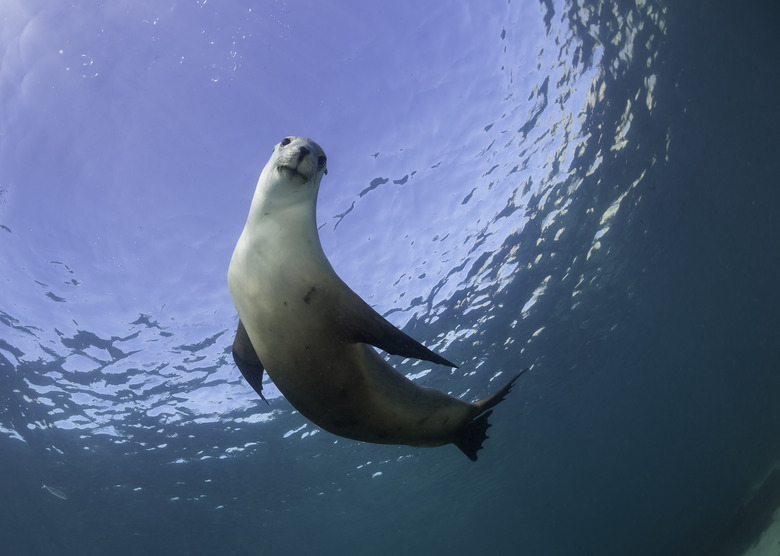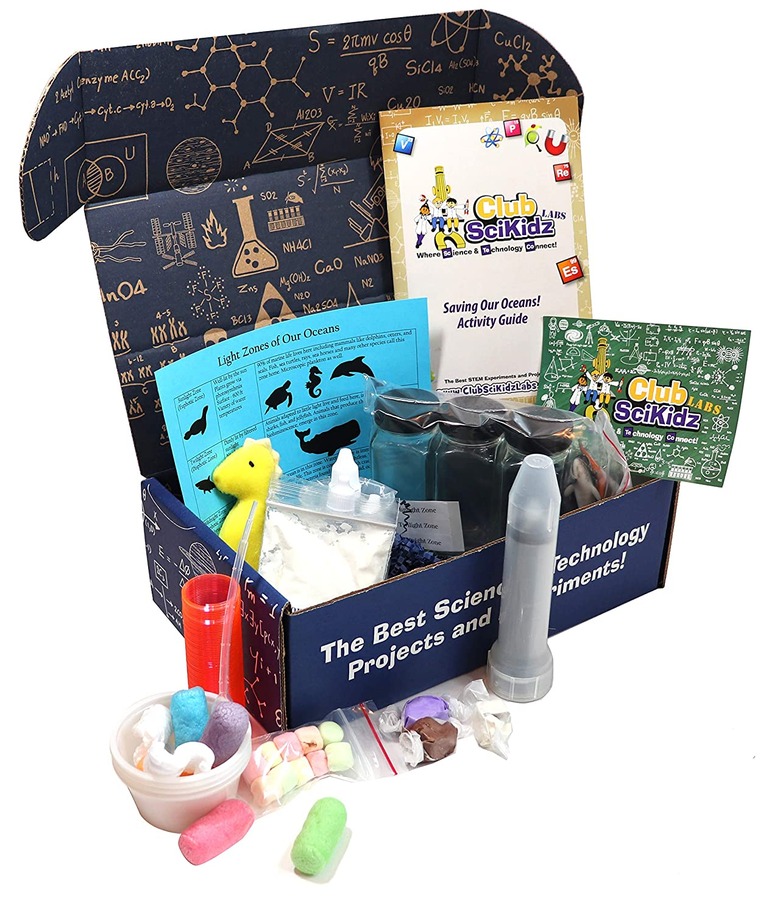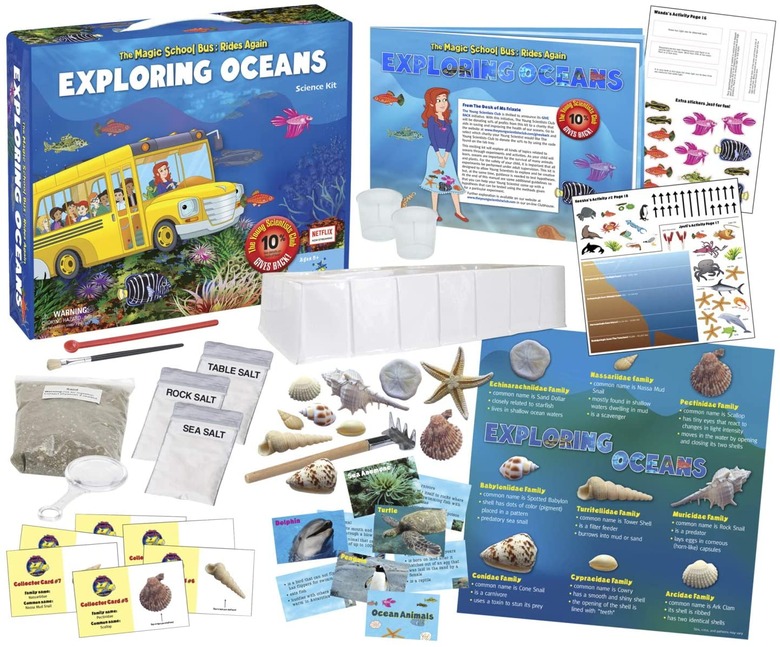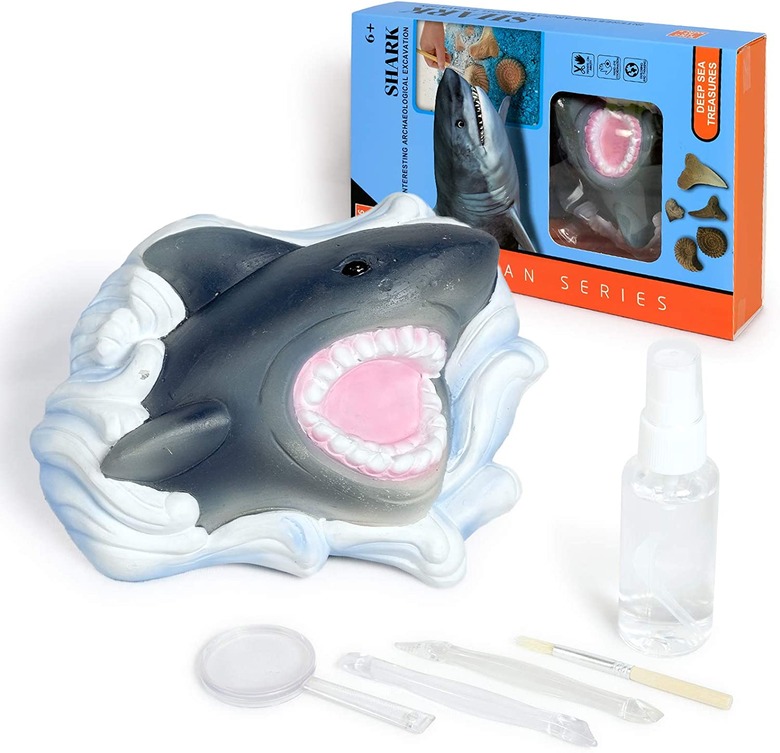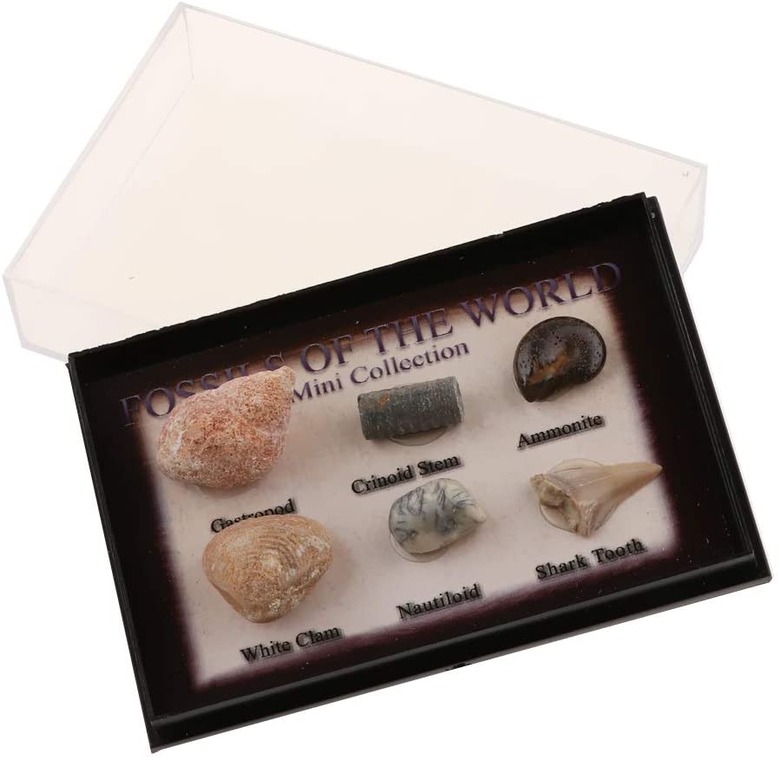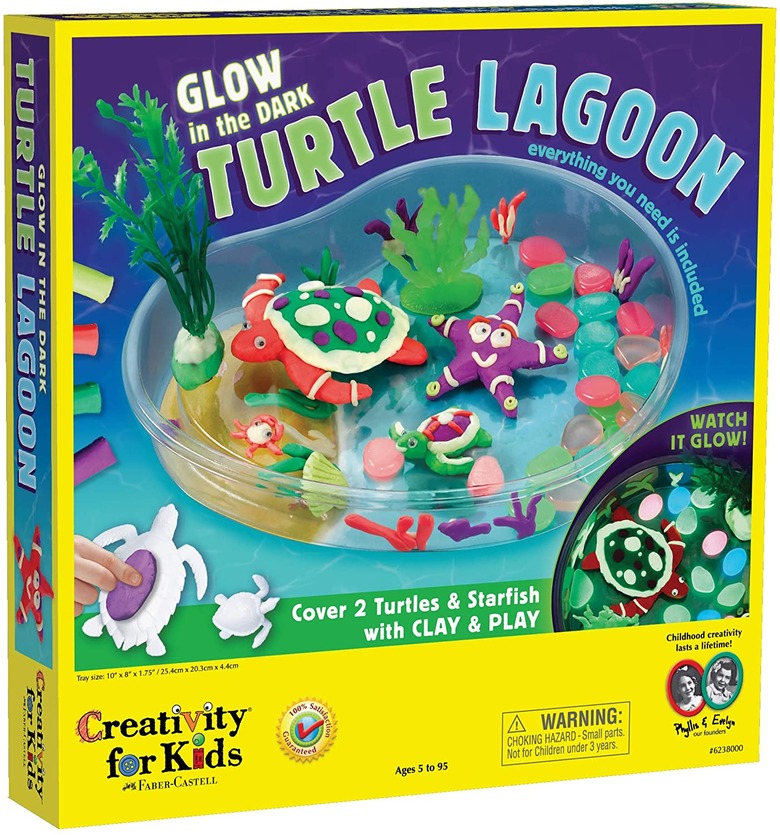Everything You Need To Know About Marine Biology (The Study Of Life In Oceans & Seas)
We may receive a commission on purchases made from links.
If you grew up surrounded by (or dreaming of) the the ocean, chances are a career in marine biology sounds pretty amazing. After all, marine biologists study the organisms and ecology of saltwater ecosystems, like the oceans and seas. So getting out on the water is often a job requirement.
And while "marine biologist" isn't typically a job title, that's actually a good thing. Marine biologists can perform a range of jobs, so you can combine your love of the oceans and seas with your passion for math, chemistry, physics, ecology or even medicine to find the right marine biology job for you.
So put on your scuba gear and get ready to dive in! Here's what you need to know about marine biology, what marine biologists do, and some fun science kits to help you get started.
What Is Marine Biology?
What Is Marine Biology?
At the most basic level, marine biology is the study of saltwater ecosystems: our oceans and seas. Marine biologists study multiple aspects of sea and ocean life. They might study the plants and animals that live in the sea, from massive kelp forests (dense seaweed forests that span for miles) to playful dolphins. They also study insects and microscopic species found in salt water ecosystems. And marine biologists might combine their work with other scientific disciplines: For example, a marine biologist and geologist might study volcanic thermal vents on the ocean's floor.
What Do Marine Biologists Do?
What Do Marine Biologists Do?
Like we mentioned, it's rare you'll find "marine biologist" on a job posting. Instead, marine biologists use the skills and specializations they learned in school to do a range of jobs. Those might include:
Marine Biology Research
Universities and other research institutions hire marine biologists to design and conduct experiments. If you're a research marine biologist, you might be heading out on the sea to collect samples or data (also called fieldwork), then running tests or conducting experiments to better understand the samples you collected. You'd also be writing research reports and scientific papers to share what you found.
Marine Conservation Work (a.k.a. Saving the Oceans)
If you're into marine biology, you already know that our oceans and seas are changing – a result of climate change. And marine biologists are important in helping figure out exactly how the oceans and seas are impacted by climate change, and what we can do to save them. If you become a marine conservation biologist, you might give governments or companies advice on the best ways to keep the oceans as clean of pollutants and safe as possible.
Marine Health Sciences
Torn between being a marine biologist or a doctor? Good news, you don't have to choose. Marine biologists can also become doctors or veterinarians to help advance health science. Marine veterinarians might help us understand and treat diseases that affect marine species and marine life. And marine doctors might look into how marine organisms or compounds found in marine ecosystems impact human health (like looking into how a chemical in seaweed, for instance, might be used for medicine).
There are many more career options, too. You could use your marine biology education to become a teacher or professor, work at a zoo or become an ocean engineer.
Explore Marine Biology With These Science Kits
Explore Marine Biology With These Science Kits
Start learning more about marine ecology and marine science with these kits.
Save Our Oceans Science Kit for Kids
Save Our Oceans Science Kit for Kids
If a career in marine conservation sounds like the right job for you, this science kit is the perfect first step. Use it to learn about biodegradable plastics (ones that are friendlier for the oceans), and model different zones in ocean ecosystems. With over 20 experiments, it'll help you learn different concepts you'll need to help save the oceans.
**Available at Amazon:** US&ref=as_li_ss_tl'>Club SciKidz STEM Save Our Oceans Science Kit
Magic School Bus: Exploring Oceans Kit
Magic School Bus: Exploring Oceans Kit
If you're looking for a great starter kit to learn more about ocean ecosystems, this is the ideal kit for you. It has a little of everything: specimens to learn more about marine species, salts and sands you'd find in the ocean, and a primer on ocean zones. It even comes with a shell identification guide, so you can analyze the samples you collect on your next beach trip.
**Available at Amazon:** US&ref=as_li_ss_tl'>The Magic School Bus Rides Again: Exploring Oceans Science Kit
Shark Tooth Excavation Science Kit
Sharks are some of the oldest species on earth, evolving about 450 million years ago (which, FYI, is 100 million years before the first tree!). This science kit lets you play marine archaeologist to "excavate" shark's teeth, so you can learn more about these marine creatures.
**Available at Amazon:** US&ref=as_li_ss_tl'>Shark Tooth Dig Kit
Natural Marine Animal Specimens Kit
Natural Marine Animal Specimens Kit
If your love of marine biology stems from wanting to learn more about marine animals, this is the kit for you. You'll get a range of marine animal specimens, from shark's teeth to arthropods (saltwater snail shells) and white claim shells. The set comes in a viewing box for safety, so it's perfect for show and tell.
**Available at Amazon:** US&ref=as_li_ss_tl'>Natural Marine Animal Specimens Collection Kit
Create Your Own Turtle Lagoon
Create Your Own Turtle Lagoon
Love science and crafts? Try making your own turtle lagoon! Use glow-in-the-dark clay to create a lagoon featuring turtles, starfish, crabs that doubles as an awesome decoration for your room.
**Available at Amazon:** US&ref=as_li_ss_tl'>Creativity for Kids Glow in the Dark Turtle Lagoon Kit
References
Cite This Article
MLA
Tremblay, Sylvie. "Everything You Need To Know About Marine Biology (The Study Of Life In Oceans & Seas)" sciencing.com, https://www.sciencing.com/what-is-marine-biology-13764456/. 28 June 2021.
APA
Tremblay, Sylvie. (2021, June 28). Everything You Need To Know About Marine Biology (The Study Of Life In Oceans & Seas). sciencing.com. Retrieved from https://www.sciencing.com/what-is-marine-biology-13764456/
Chicago
Tremblay, Sylvie. Everything You Need To Know About Marine Biology (The Study Of Life In Oceans & Seas) last modified August 30, 2022. https://www.sciencing.com/what-is-marine-biology-13764456/
